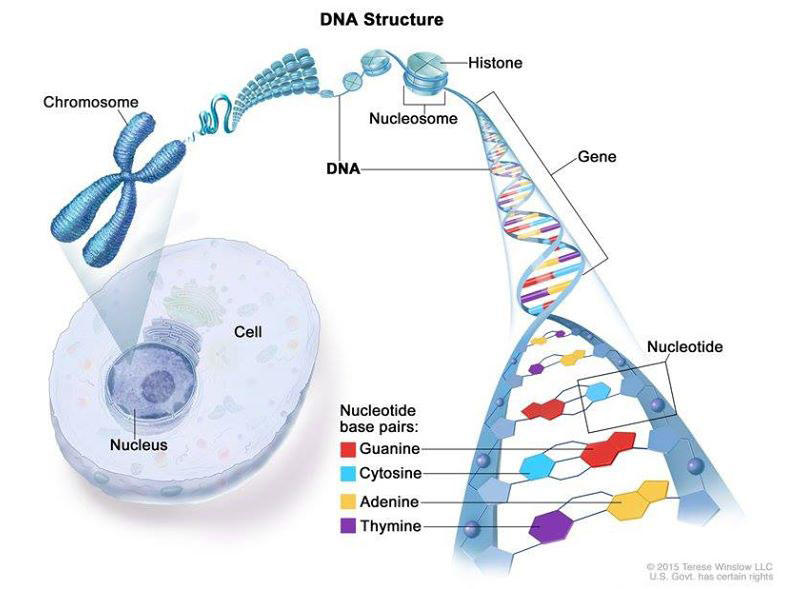Differences between Cancer Cells and Normal Cells
Cancer cells differ from normal cells in many ways. For instance, cancer cells:
1. Grow in the absence of signals telling them to grow. Normal cells only grow when they receive such signals.
- 2. Cancer cells ignore signals that normally tell cells to stop dividing or to die (a process known as programmed cell death, or apoptosis).
- 3. Cancer cells invade into nearby areas and spread to other areas of the body. Normal cells stop growing when they encounter other cells, and most normal cells do not move around the body.
- 4. Cancer cells tell blood vessels to grow toward tumors. These blood vessels supply tumors with oxygen and nutrients and remove waste products from tumors.
- 5. Cancer cells hide from the immune system. The immune system normally eliminates damaged or abnormal cells.
- 6. Cancer cells trick the immune system into helping them stay alive and grow. For instance, some cancer cells convince immune cells to protect the tumor instead of attacking it.
- 7. Cancer cells accumulate multiple changes in their chromosomes, such as duplications and deletions of chromosome parts. Some cancer cells have double the normal number of chromosomes.
- 8. Cancer cells rely on different kinds of nutrients than do normal cells. In addition, some cancer cells make energy from nutrients in a different way than most normal cells. This lets cancer cells grow more quickly.
Cancer cells rely so heavily on the above 8 abnormal behaviors that they can’t survive without them. Researchers have taken advantage of this fact, developing therapies that target the abnormal features of cancer cells. For example, some cancer therapies prevent blood vessels from growing toward tumors, essentially starving the tumor of needed nutrients.
How Does Cancer Develop?
Cancer is a genetic disease—that is, it is caused by changes to genes that control the way our cells function, especially how they grow and divide.
Genetic changes that cause cancer can happen because:
- 1. Errors that occur as cells divide.
- 2. Damage to DNA caused by harmful substances in the environment, such as the chemicals in car exhausts, tobacco smoke and ultraviolet rays from the sun. (Our Cancer Causes and Prevention section has more information.)
- 3. Problematic Genes were inherited from our parents.
The body normally eliminates cells with damaged DNA before they turn cancerous. But the body’s ability to do so goes down as we age. This is part of the reason why there is a higher risk of cancer later in life.
Each person’s cancer has a unique combination of genetic changes. As the cancer continues to grow, additional changes will occur. Even within the same tumor, different cells may have different genetic changes.

No comments:
Post a Comment